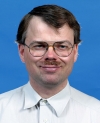 |
Frank Stephan's addresses are:
(1) Department of Mathematics, National University of Singapore
10 Lower Kentridge Road, S17, Singapore 119076
Primary Office: S17#07-04, Telephone +65-6516-2759
(2) School of Computing, National University of Singpore
13 Computing Drive, Computing 2 (COM2), Singapore 117590
Secondary Office: COM2#03-11, Telephone +65-6516-4246
The telefax in the main office of the Department of Mathematics
is +65-67795452
The email address is
fstephan@comp.nus.edu.sg;
other email addresses are read less frequently, thus please use this one.
|
